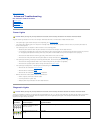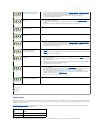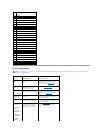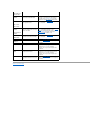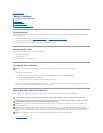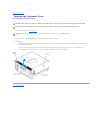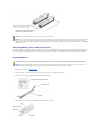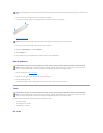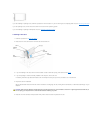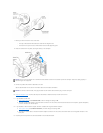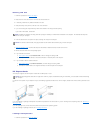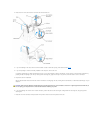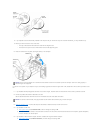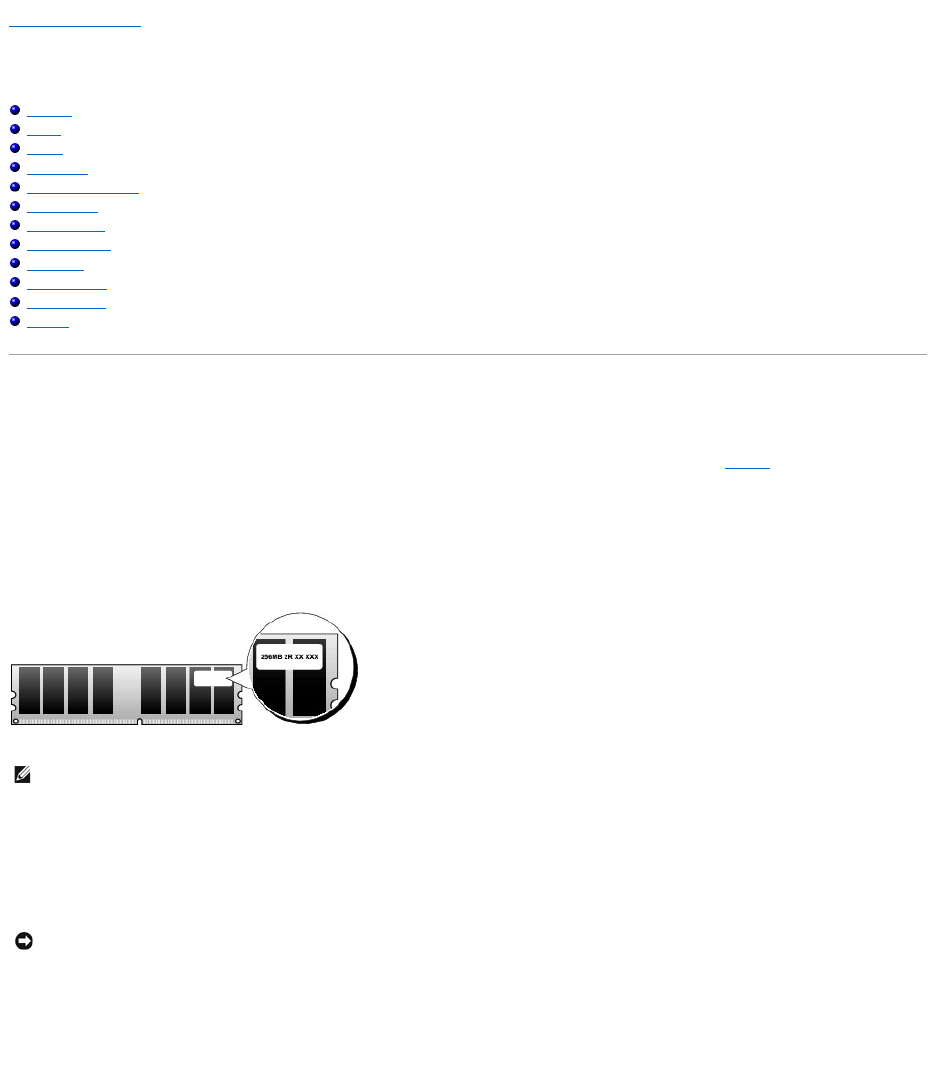
Back to Contents Page
Removing and Installing Parts
Dell™Dimension™8400ServiceManual
Memory
Cards
Drives
Hard Drive
Front-Panel Inserts
Floppy Drive
CD/DVD Drive
Airflow Shroud
Processor
System Board
Power Supply
Battery
Memory
You can increase your computer memory by installing memory modules on the system board.
Your computer supports DDR2 memory. For additional information on the type of memory supported by your computer, see "Memory".
DDR2 Memory Overview
DDR2 memory modules should be installed in pairs of matched memory size, speed, and technology. If the DDR2 memory modules are not installed in matched
pairs, the computer will continue to operate, but with a slight reduction in performance. See the label on the upper-right corner of the module to determine the
module's capacity.
The recommended memory configurations are:
¡ A pair of matched memory modules installed in DIMM connectors 1 and 2
or
¡ A pair of matched memory modules installed in DIMM connectors 1 and 2 and another matched pair installed in DIMM connectors 3 and 4
l If you install mixed pairs of DDR2 400-MHz (PC2-3200) and DDR2 533-MHz (PC2-4200) memory, the modules function at the slowest speed installed.
Similarly, if you install memory modules with mixed CAS Latency (CL) rates, the modules function at the speed and CAS latency capabilities of the
slowest DIMM.
l Be sure to install a single memory module in DIMM connector 1, the connector closest to the processor, before you install modules in the other
connectors.
NOTE: Always install DDR2 memory modules in the order indicated on the system board.
NOTICE: Do not install ECC memory modules.



